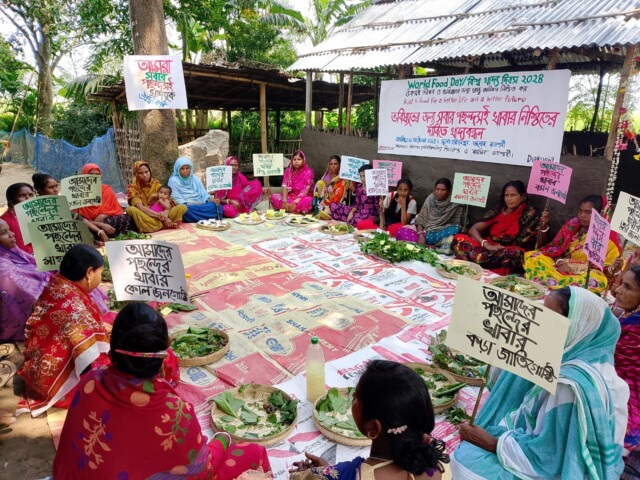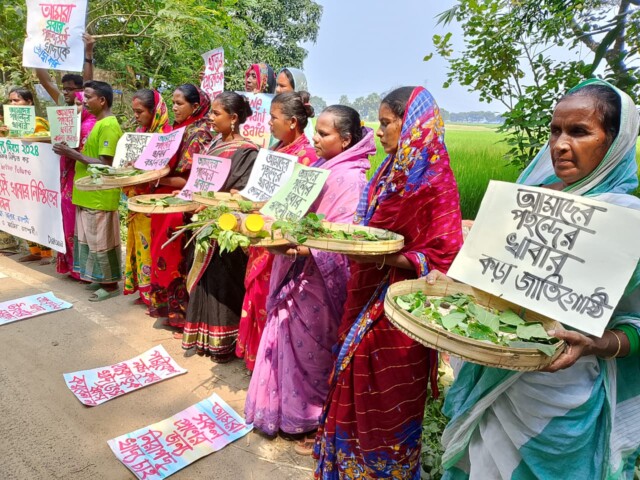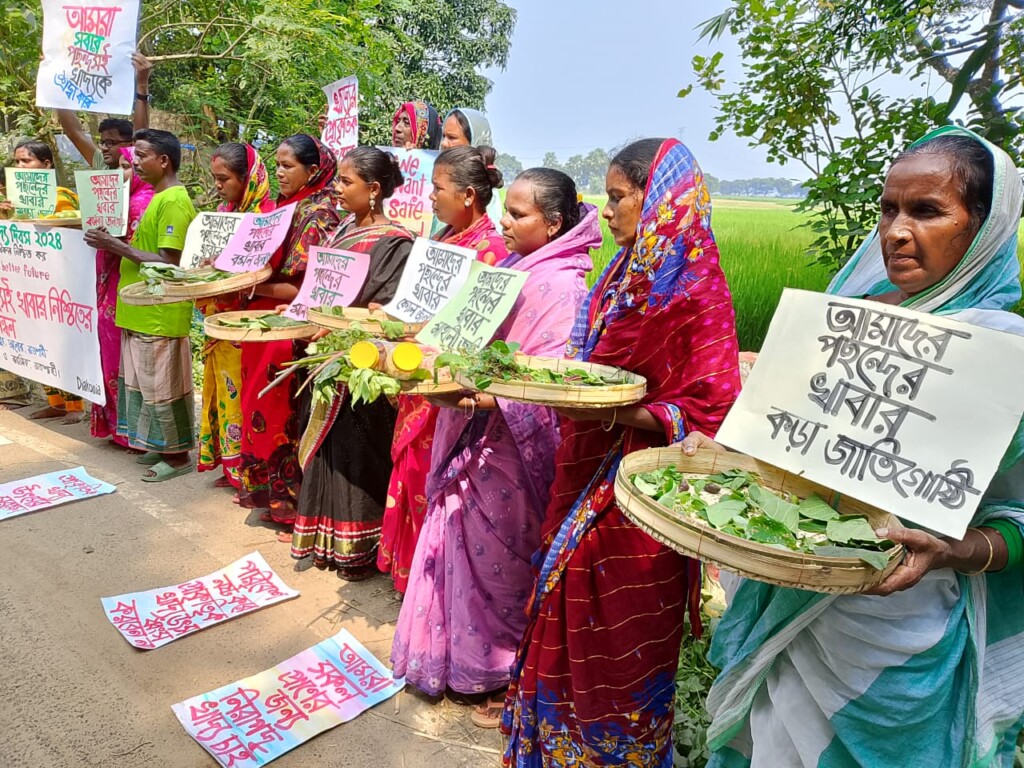Md. Shahidul Islam, from Rajshahi,
Food not only sustains life but also plays a vital role in preserving the dignity, cultural diversity, rich history, heritage, and geographical uniqueness of different ethnic groups. The diverse ethnic communities of Barind region recently participated in a ‘Food Solidarity’ event organized by BARCIK and shared their views to protect their preferred food varieties.
To mark the World Food Day 2024, BARCIK and the Barind Region People’s Organization Forum held this Food Solidarity event in Horidebpur, Tanore Upazila of Rajshahi. Different ethnic communities from the Barind region—such as the Santal, Munda, Pahan, Mahali, Kara, Rabidas, Karmakar, Mal Paharia, Turi, Kol, Bashfor, Barman, Paharia, along with Muslim, Hindu, and Christian communities—displayed their culturally and traditionally preferred cultivated and uncultivated foods, asserting their right to food.

Participants held locally grown and uncultivated foods, including various vegetables and prepared dishes stated, “Each of us, with our diverse cultural backgrounds and religions, has our own unique food preferences, but these are gradually disappearing. The impact of chemical pesticides and the focus on monoculture is destroying our cherished foods. Native crop varieties are vanishing. We will protect our food, our seeds ourselves.”

Md. Shahidul Islam, a BARCIK researcher and regional coordinator, stated that food rights and sovereignty encompass production, distribution, and control over food. He added, “As we lose control over our traditional crops, seeds, and production methods, we lose our autonomy over food. Protecting each community’s unique food heritage is also a responsibility of the state.”

Monika Mahali (42) from the Mahali community in Mondumala, Tanore, said, “We, the Mahali people, love snails, clams, and mudfish, but now, due to toxins and water pollution in ponds and rivers, these are hard to find. Our food freedom is being taken away.” Jayanti Bala (37) from the Mal Paharia community in Chapra, Tanore, said, “There was a time when we could find wild, uncultivated vegetables around our homes, but not anymore. These plants are diminishing day by day due to environmental degradation.”

